Pete for America: Leaderboard challenge election fundraising
- Exhibited by
- Ryan Steele
- Added
- March 04, 2021
- Medium of Communication
- Digital
- Target Audience
- Democrat donors
- Type of Charity
- Political fundraising campaign
- Country of Origin
- USA
- Date of first appearance
- February 2020
SOFII’s view
Can fundraisers learn from political campaigns? It would seem we can, if this innovative appeal by Pete Buttigieg is anything to go by. As Ryan Steele enthusiastically pointed out at IWITOT: The Americas, combining video game aesthetics with clear asks and objectives tapped into donors’ enthusiasm for Buttigieg’s cause, as well as their sense of fun and competitive spirit.
It’s a strategy that could be adapted by many non-political organisations. And that's why we think this digital appeal is much more than a game - it’s an inspirational fundraising campaign.
Summary / objectives
To raise money quickly in the late stages of his presidential campaign, Democratic nomination challenger Pete Buttigieg turned giving into a game with a unique leaderboard challenge.
Creator / originator
The campaign to elect Pete Buttigieg, Democratic candidate for the US Presidency
Background
Pete Buttigieg was a presidential hopeful in the 2020 US election. Like all American political campaigns, fundraising was a top priority. The leaderboard challenge was launched in late February, just ahead of an important campaign milestone where having extra monetary support was crucial. The campaign needed to create excitement and urgency so it could generate donations in a short period of time. And by utilising gamification (i.e. turning a campaign into something resembling a video game), Pete’s fundraising team did exactly that.
Special characteristics
The leaderboard challenge was a digital fundraising effort that used the theme of a game in which donation amounts were consecutively listed on a leaderboard. The amounts were in dollar increments from US$1 to US$2,800, or the maximum amount allowed for individual contributors to a political campaign. Each individual amount was up for grabs and the first supporter to donate that specific amount (or ‘high score’, as they referred to it) would be listed on the leaderboard with their name and location.
If another supporter beat you to it, it was ‘game over.’ Well, kind of - your donation was of course still accepted, but your name would not make it on the leaderboard. Instead, when the challenge was completed, in addition to those that made it on the leaderboard they featured the names of all supporters who contributed during the game.
To further incentivise gifts and celebrate friendly competition, the campaign cleverly highlighted at the top of the page, the most recent player, the highest score and the next amount available.
Because the idea created a sense of urgency to get your name on the leaderboard, supporters flocked to the idea to get a chance at being listed. The intentional use of a theme created a sense of playfulness making giving fun! Best of all, if all the slots were filled the effort would have raised over US$3.9 million dollars!
As great as the gamification was, the campaign could be played on social media too ... and it played well.
Chasten, Pete’s husband, put out an initial tweet to engage supporters - he asked someone to donate US$616, as he and Pete were married on June 16. Within minutes there were plenty of likes and retweets, but most importantly someone took him up on the challenge and gave US$616! Using this momentum, Chasten thanked the donor via Twitter and started a thread asking for a donation in honour of the next meaningful date to Pete and him. It was quickly grabbed as well, and the process happened again and again.
This social engagement turned the gamification personal and it was double fold. Not only was engagement sparked and more people headed to the leaderboard to give, but supporters were also now giving their own meaningful amounts and sharing on social media even furthering the reach of the campaign. A fringe benefit of this engagement was that it inspired supporters to make meaningful contributions even if it did not put them on the leaderboard. For example, a music teacher who gave what they could, US$6.16, in response to Chasten’s tweet asking US$616.
Ultimately, this engagement coupled with gamification had supporters giving quickly and giving more than they would have if it were just a regular giving form with a clever marketing tagline.
This campaign raised more money and it did so in a personal way that sparked further engagement.
From donors’ responses on Twitter, it was clear that people were noting that even though they gave moments ago on the regular campaign site, the gamification drew them to support again! People who were initially were going to give a smaller amount, increased their support because the spot was taken, and they still wanted to contribute. The dynamic duo of gamification and meaningful social engagement paid dividends for the cause!
Merits
Simple, yet brilliant! Of course, the idea on its own merit is great, but this campaign was brilliant for three reasons: it was a clever use of gamification, it sparked engagement and it could be adapted for multiple uses.
Results
It’s sometimes difficult to get a clear idea of political campaign fundraising results but many donors donated multiple times in a bid to ‘win’ the game. It was most certainly a success.
Influence / impact
While all that is great, the best fundraising ideas are made better when they are adaptable – and this idea is just that – adaptable!
The idea could be relatively simple to emulate. If you’ve got the budget, create a sleek, branded site like Pete’s and couple it with a social media effort. If you’re short on budget or have a smaller staff, create a social media campaign around giving a meaningful amount on your current website or through mail. A great example would be to incorporate this idea into a giving day where you are trying to garner support in a short time period or maybe even as part of your organisation’s Giving Tuesday efforts. The options are endless and advantages plentiful.
*Ryan Steele presented this superb campaign at the first-ever edition of IWITOT: The Americas on January 26, 2021. If you would like to order a full recording of this inspiring event, please email joanna@sofii.org.
Watch Ryan’s presentation and interview at IWITOT: The Americas 2021 below.
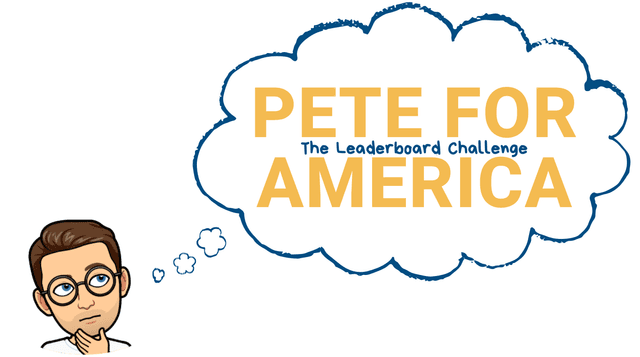
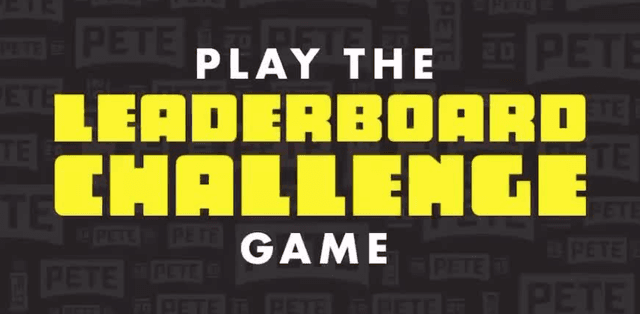
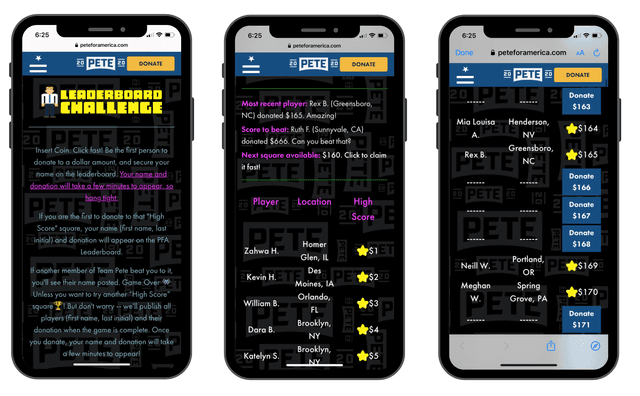 View original image
View original image
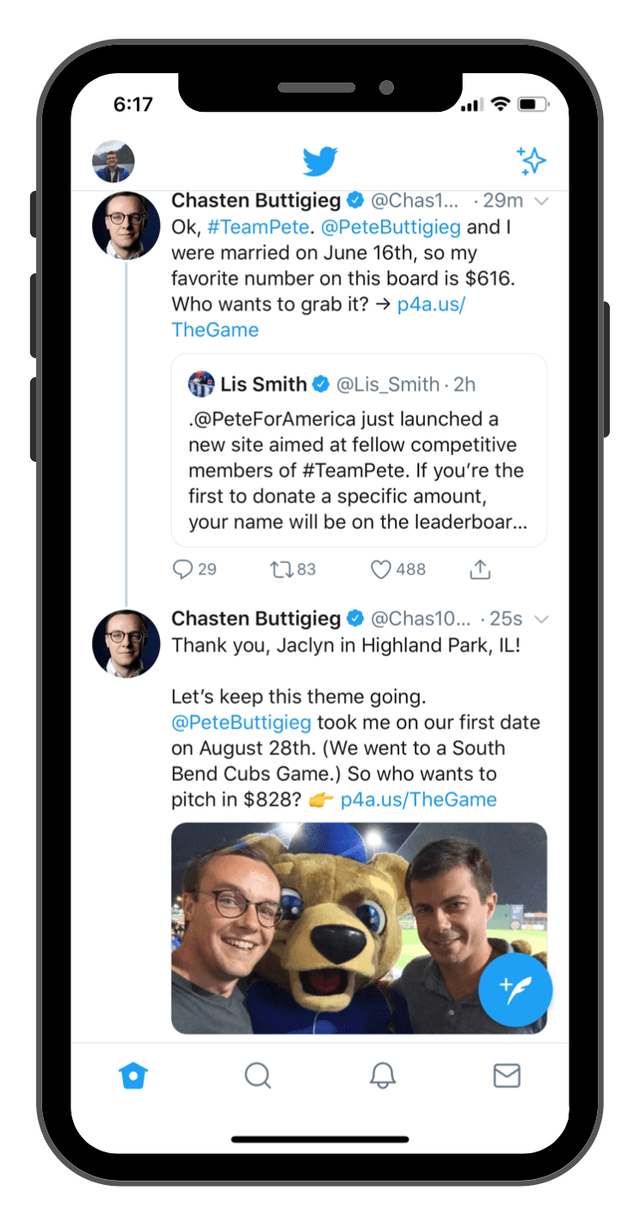
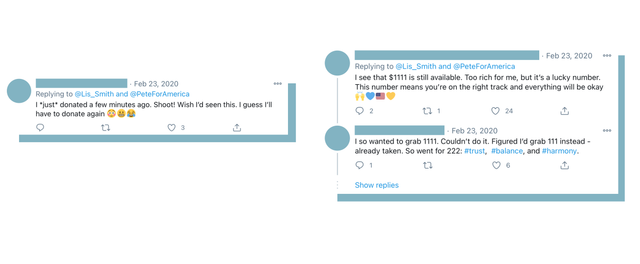 View original image
View original image


















